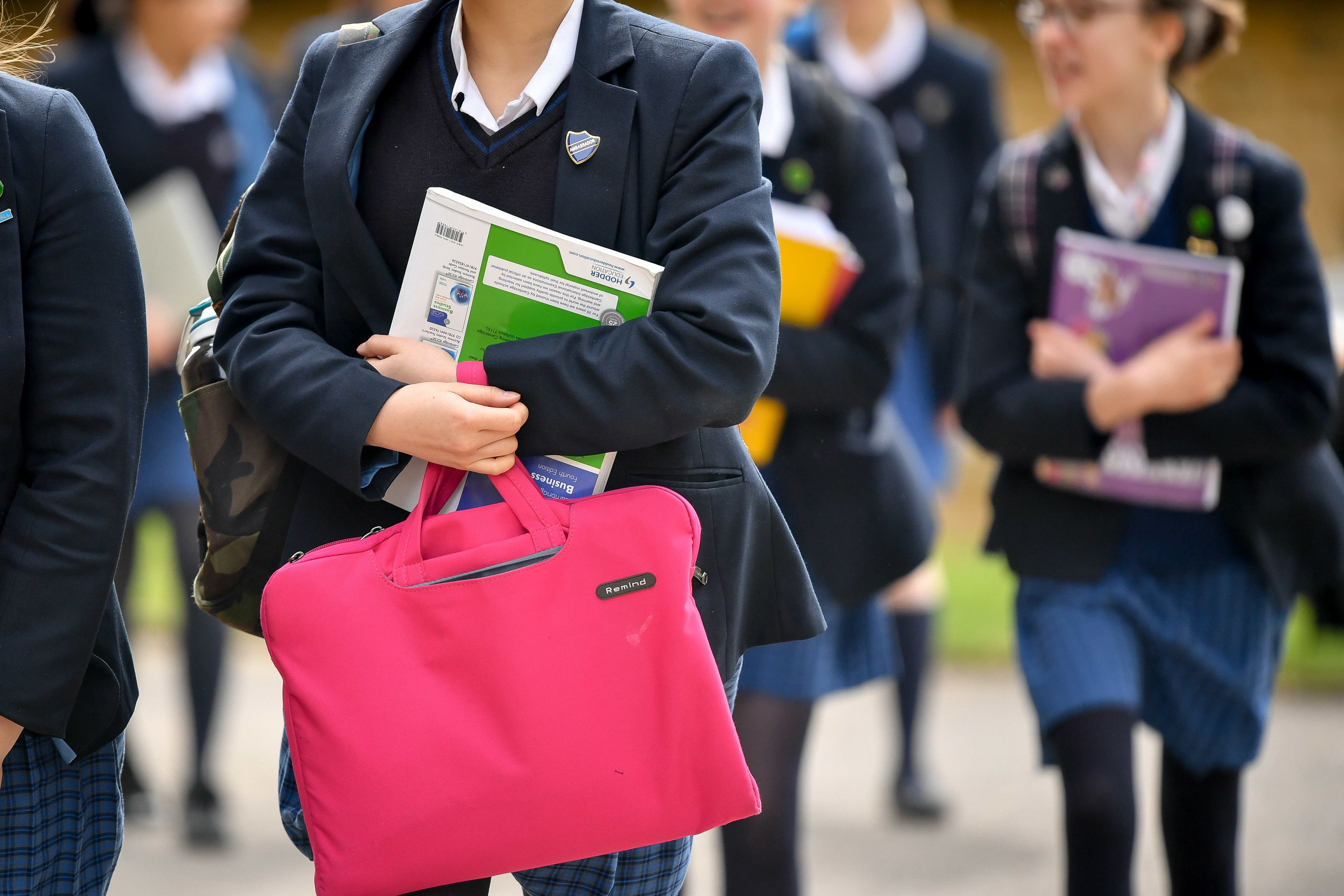Average private school fees soar to more than £18,000 a year
Labour’s plan to charge VAT on fees is ‘looming large’ in parents’ minds and schools are worried about pupil recruitment, the ISC said.

Your support helps us to tell the story
From reproductive rights to climate change to Big Tech, The Independent is on the ground when the story is developing. Whether it's investigating the financials of Elon Musk's pro-Trump PAC or producing our latest documentary, 'The A Word', which shines a light on the American women fighting for reproductive rights, we know how important it is to parse out the facts from the messaging.
At such a critical moment in US history, we need reporters on the ground. Your donation allows us to keep sending journalists to speak to both sides of the story.
The Independent is trusted by Americans across the entire political spectrum. And unlike many other quality news outlets, we choose not to lock Americans out of our reporting and analysis with paywalls. We believe quality journalism should be available to everyone, paid for by those who can afford it.
Your support makes all the difference.Private school fees have increased by 8%, with families now paying out more than £6,000 a term on average, figures show.
The number of new pupils joining private schools has dropped by 2.7% since last year, which is the biggest fall since the Independent Schools Council (ISC) started collecting data in 2011.
The latest annual census from the ISC shows average fees for private day schools rose by 8% for the 2023-24 academic year compared with the year before.
The report said the increase was similar to Government figures of inflation at the time schools made fee decisions for the coming year.
In a foreword to the report, Barnaby Lenon, chairman of the ISC, said Labour’s plan to charge 20% VAT on private fees is “looming large in parents’ minds” and private schools are concerned about pupil recruitment and retention.
Headteachers have been telling us that nearly every prospective parent is asking about VAT. The concern is palpable
He said: “A pupil bulge has made its way through the school system, but independent school numbers have not been rising to the same extent, leading to a decline in the proportion of children educated in independent schools from 7% to 6%.”
Mr Lenon warned that an increase in fees caused by VAT – when combined with high inflation and increased employer contributions to the Teachers’ Pension Scheme – could provide “a far more acute shock to the system”.
The census, based on a survey of 1,411 UK independent schools conducted in January, says the average fee for a day school – which the majority of ISC pupils attend – is now £6,021 per term or £18,064 per annum.
There are differences between school types, with boarding school fees the highest at £14,153 a term on average, up 9% on last year, while day fees for boarding school are £7,975, up 8.8% on last year.
These figures – which exclude nursery fees – cover sixth form, senior and junior schools, with the increases in fees based on ISC schools that completed the survey both this year and last.
Among day schools, the majority charge between £3,000 and £6,000 a term, the census said.
It also shows that around a third (33.5%) of all ISC pupils receive some help with their fees.
Around £1.4 billion was spent on providing fee assistance this year, which includes bursaries and scholarships, an increase of 10.2% on last year.
The report said partnership work with state schools has also increased, with 9,248 partnerships reported in the calendar year of 2023, compared with 8,793 the year before.
Julie Robinson, chief executive of the ISC, said: “Independent schools continue to work hard to make fees affordable for families choosing independent education for their children.
“At a time of political and economic uncertainty, the rise in bursary funds and partnership work shows that improving education for all continues to be at the heart of what our schools do.
“We would caution politicians against policies that risk undermining that work without first doing a full impact assessment, particularly looking at the effects on SEND provision, faith schools and military families.”
On Labour’s planned tax on private schools, she added: “Headteachers have been telling us that nearly every prospective parent is asking about VAT. The concern is palpable.
“Without any detailed policy from Labour, schools cannot plan properly and that uncertainty is not good for parents, who are having to make decisions now that will impact their child’s education for years to come.”
In March, Patrick Roach, general secretary of the NASUWT teaching union, said he was “concerned” about the possible consequences of Labour’s proposals to charge 20% VAT on private school fees in England.
He suggested some schools could “go to the wall” and teachers may lose their jobs under the plans.